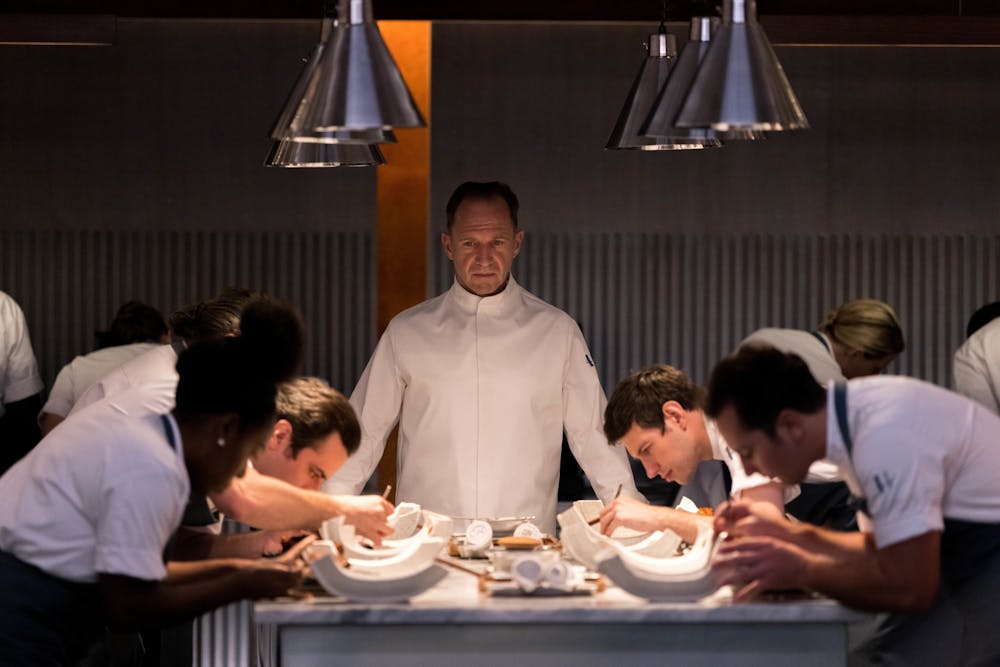SPOILER ALERT: This column contains potential spoilers about “The Menu.”
What if you held a protest and everyone came?
This is a question English philosopher Mark Fisher poses in the second chapter of his seminal book “Capitalist Realism.”
In this short book, Fisher lays out his concept of “capitalist realism,” which he defines as the widespread sense that capitalism is the only viable political and economic system, and that it’s now impossible to even imagine any coherent alternative.
He sums up the concept this way: it’s easier to imagine the end of the world than the end of capitalism.
Capitalist realism is the pervasive atmosphere of modern life. Fisher argues most of us understand capitalism is an awful, outdated system but have nonetheless internalized the TINA principle, popularized by Margaret Thatcher: “there is no alternative” to a capitalist economy.
“We believe that money is only a meaningless token of no intrinsic worth, yet we act as if it has a holy value,” Fisher wrote.
[Related: OPINION: Denouncing the horrors of capitalism]
This is why, according to Fisher, moral critiques of capitalism aren’t effective in this atmosphere of capitalist realism. It isn’t enough to point out that capitalism has throughout history created poverty, famine and war – we have come to openly acknowledge the system is terrible, but it’s supposedly the best we can do.
Which leads us back to chapter two, and the protest in which everyone turns up. One of the most interesting arguments Fisher makes in the book is that anti-capitalism itself is no longer a threat to the atmosphere of capitalist realism. In fact, anti-capitalism is “widely disseminated” in capitalism and can actually reinforce the TINA principle.
Over the break I watched a terrific horror/satire film called, “The Menu.” In the film, Margot (Anya Taylor-Joy) is a sex worker who’s been hired by her date to join him at an exclusive island restaurant frequented by some of the worst bourgeois parasites imaginable. Over the course of the evening, the chef and his crew of disgruntled service industry workers engage in ruthless class warfare, and everyone but Margot ends up dead.
The ending of “The Menu” really impressed me. The primary antagonist is the chef (Ralph Fiennes), and his deadly actions against his diners are depicted as justified. The protagonist doesn’t stop him. Right before the credits roll, Margot is seen calmly eating a cheeseburger as all of the rich patrons are killed.
A more cowardly writer might have been tempted to have Margot rescue the representatives of a capitalist system which causes so much misery for workers. But no – she leaves them to die.
“The Menu,” as much as I enjoyed it, isn’t so unique. Similar anti-capitalist media in recent memory include “Glass Onion: A Knives Out Mystery,” “Parasite” and “Squid Game.” Fisher uses “WALL-E” as an example. Ultra-wealthy capitalists and corporations are often (and justifiably so) cast as villains in the content we consume.
And yet, despite most of us finding such villains to be quite believable, we still seem to accept that “there is no alternative.” Fisher says this of “WALL-E:” “The film performs our anti-capitalism for us, allowing us to continue to consume with impunity… So long as we believe (in our hearts) that capitalism is bad, we are free to continue to participate in capitalist exchange.”
A protest in which everyone shows up is no protest at all. By definition, someone – those being protested against – must be excluded. But movies like “The Menu” and shows like “Squid Game” are like such a protest – everyone can consume them, and no threat to the system is made.
[Related: OPINION: 6 books every leftist should read (and a few others)]
Movies can’t change the world. No one is going to watch “The Menu” and be persuaded to pick up “Das Kapital.” If Fisher is right and most people seem to understand capitalism is rotten to the core, then anti-capitalism is not going to be enough as far as activism goes. The role socialists must play in this world of capitalist realism is to show the masses an alternative.
And if the moral critiques listed above are simply not persuasive enough, then the “realism” of capitalism must be called into question.
Reactionaries say capitalism is the only realistic system, all others are utopias. But climate change, largely driven by the capitalist system, is rapidly destroying the planet. Moreover, capitalism is constantly running cycles of ever-worsening crises. Both examples seem to suggest capitalism undermines itself, and therefore cannot be viewed as a tenable system.
But socialists must do more. We must argue for the possibility of a system in which workers rule their own lives and aren’t ruled by the bloodsuckers depicted in “The Menu.” There are alternatives to capitalism, and if we want to save our planet and control our lives, we must build them. Movies can’t do that for us.
Jared Quigg (he/him) is a junior studying journalism and political science.




